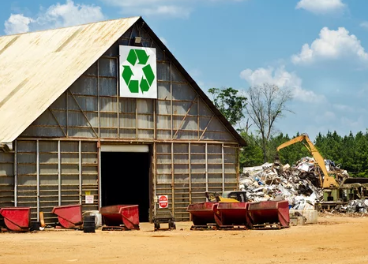The Importance of Our “Other” Collection Locations

At TRC, we rightfully devote much attention to our wholesale partners, who provide the bedrock upon which we base our collection efforts. Without them, we would have been hard-pressed to recycle more than 2.9 million units over the past 24 years.
However, other partners have contributed significantly to our efforts, and it’s appropriate that we draw attention to them. For example, consider Household Hazardous Waste facilities and municipal transfer stations, both of which play a valuable role in our collection process.
Because we are so directly linked to HVAC wholesalers, we don’t need to explain their function in the heating and cooling industry.
However, the role of recycling centers might be less familiar to many people. Here are two types of facilities for recycling with which we should be in the know. One is waste transfer stations, which municipalities use for their solid waste. The term we apply to them is municipal solid waste locations or MSWs. They serve as temporary storage facilities before trash moves along the environmental stream to the end of the line, usually a landfill or a waste-to-energy plant.
The other facilities supporting TRC are Household Hazard Waste (HHW) locations. The EPA considers leftover household products that can catch fire, react, or explode under special circumstances, are covered by the HHW banner. The EPA also applies the term to products that can be corrosive or toxic. Certainly, mercury-containing thermostats, as well as paints, cleaners, oils, batteries, and pesticides fit into this category.
It’s worth repeating why MSWs and HHWs are essential. Both play a vital role in a community’s waste management strategy. They help reduce the amount of waste in landfills and incinerators, resulting in a safer environment and the preservation of our natural resources.
They are also essential in sorting out waste, especially if they are not biodegradable. That’s why we treat and separate plastics, metals, and glass.
Also, keep in mind that landfills are finite. The longer we can contain their growth and spread, the fewer we will need to create.
If you need a recycling center, go to our website and enter your ZIP code. It should bring up a list of recycling centers for thermostats, including wholesalers, MSWs, and HHWs.
We should remember that in heavily populated areas, there’s an HVAC wholesaler around the corner. Not so for rural or less populated states. The result is that the default choice for thermostats just might be an appropriate recycling center instead of a wholesaler. We appreciate their participation and help offer them a free pathway to dispose of the mercury-containing thermostats they collect.
The message here is to use the facility closest to you that makes the most sense. Don’t forget that MSWs and HHWs are viable options, especially if you have other products that need recycling in an appropriate manner.

